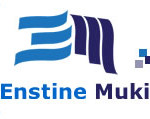Ever wondered how your bank protects your personal information? Or why you get those privacy policy letters in the mail every year? That’s where the Gramm-Leach-Bliley Act, or GLBA, comes into play. It’s not just a mouthful of a name — it’s a law that’s all about keeping your financial data safe.
The GLBA was passed in 1999. It may sound old, but it’s still super important today. This law makes sure that financial companies handle your private information with care.
So, what exactly does the GLBA do?
In simple terms, it does three main things:
- It protects your personal data. Banks, lenders, and insurers must keep your information secure.
- It limits what data companies can share. You can sometimes choose to stop them from sharing.
- It forces companies to tell you their privacy practices. That’s why you get those yearly emails or letters!
The GLBA is made up of three key parts. Let’s break them down:
1. The Financial Privacy Rule
This rule says financial companies must explain how they collect, use, and share your data. When you open a bank account or get a mortgage, they must tell you:
- What personal info they collect
- Where that info goes
- If you can stop them from sharing it
These companies can’t just share your private details with anyone. And if you don’t like how they share your info, you can sometimes “opt out.”
2. The Safeguards Rule
Here’s where cybersecurity comes in. This rule tells financial companies they must have a security plan in place. That plan must protect your sensitive data from hackers, leaks, or even employee snoops.
Companies must:
- Identify possible security risks
- Design a plan to protect against them
- Regularly test and update that plan
Not just anyone can handle your private info. The people who do must know how to do it safely!
3. The Pretexting Provisions
Ever heard of “pretexting”? It’s when someone lies to get your private info. Like pretending to be you on the phone with your bank.
This rule makes that illegal. It also tells companies to guard against these sneaky tricks. So next time your bank asks five different questions to confirm your identity, they’re following the GLBA!
Why Should You Care?
Think about all the data your bank has. Your name, Social Security number, income, buying habits, and more. If that info gets into the wrong hands, it could lead to identity theft or fraud.
The GLBA exists to prevent that. It helps ensure that companies handle your info like treasure — not just toss it around like junk mail.
Who Has to Follow the GLBA?
Lots of companies! Here are some examples:
- Banks and credit unions
- Investment firms
- Mortgage lenders
- Insurance companies
- Even some car dealerships that help you finance
If they collect your financial data, they probably need to follow the GLBA’s rules.
What About You?
You also have responsibilities. If you get a chance to opt out of data sharing, take a second to think about it. Do you want your bank giving your info to other companies?
Also, always check who you’re giving your personal info to. If something smells fishy, it might be pretexting.
Final Thoughts
The Gramm-Leach-Bliley Act may sound complicated, but its goal is simple: to protect your financial privacy.
Thanks to the GLBA, companies must think carefully about how they collect and share your data. And you get to make choices about it too!
So the next time you see that privacy notice in your mailbox, you’ll know exactly why it’s there — and why it matters.

